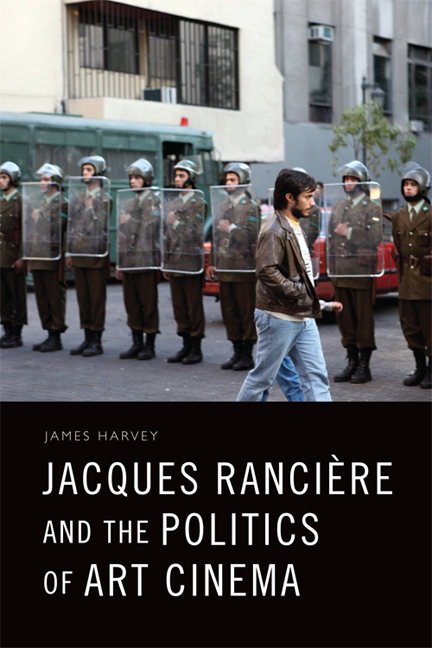4 - Ceylan’s Equality
Published online by Cambridge University Press: 28 April 2021
Summary
Political subjectivisation is the enactment of equality – or the handling of a wrong – by people who are together to the extent that they are between. It is a crossing of identities, relying on a crossing of names: names that link the name of a group or class to the name of no group or no class, a being to a nonbeing or a not-yet-being.
(Rancière 1992: 61)Contributing to a dossier on ‘identity’ in a 1992 edition of October, Rancière elaborates on the intellectual equality he describes in The Ignorant Schoolmaster (1991). In so doing, he foreshadows the theories of Disagreement, where he claims that equality is ‘the principle of politics’ – not its destination (1999: ix). Equality already exists in the world, it just happens to have been portioned out by and amongst the privileged few. It is, in other words, not an impossibility or even a wild hope; it exists omnipotently, albeit in a state of latency. Following the above quotation, this latency is interrupted when a visible body traverses both the site of visibility and invisibility, demonstrating the existence of equality and the ‘wrong’ of its denial. This chapter is concerned with identifying such a latent potential for traversing these sites in the viewing conditions of cinema and its hierarchies of spectatorship.
In The Emancipated Spectator, Rancière identifies two poles of political spectatorship: the techniques of immersion proposed and practised by Antonin Artaud and those of distancing by Bertolt Brecht. On one hand, the spectator's cognition is engaged through a spectacle of ‘cruelty’ – something that invokes an overwhelming emotional response. Conversely, the latter seeks to distance the spectator from the drama to such an extent that she becomes conscious of her alienation. Symptomatic of each mode's demanding critical approach is a stultifying view of the spectator: she is either too far removed from authentic lived experience or too much a part of the ideological reality. While theatrical in origin, both are commonplace artistic starting points for texts in the canon of art films. As such, art cinema itself has a history of treating its spectator in similarly patronising ways.
- Type
- Chapter
- Information
- Jacques Rancière and the Politics of Art Cinema , pp. 82 - 100Publisher: Edinburgh University PressPrint publication year: 2018



